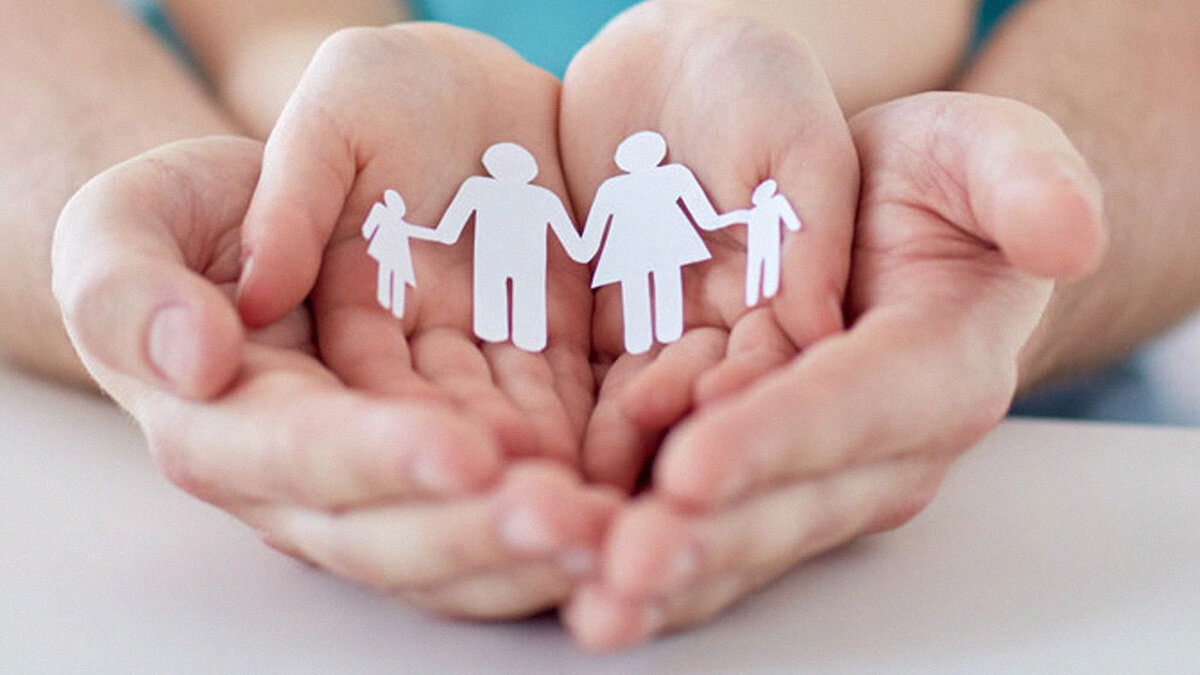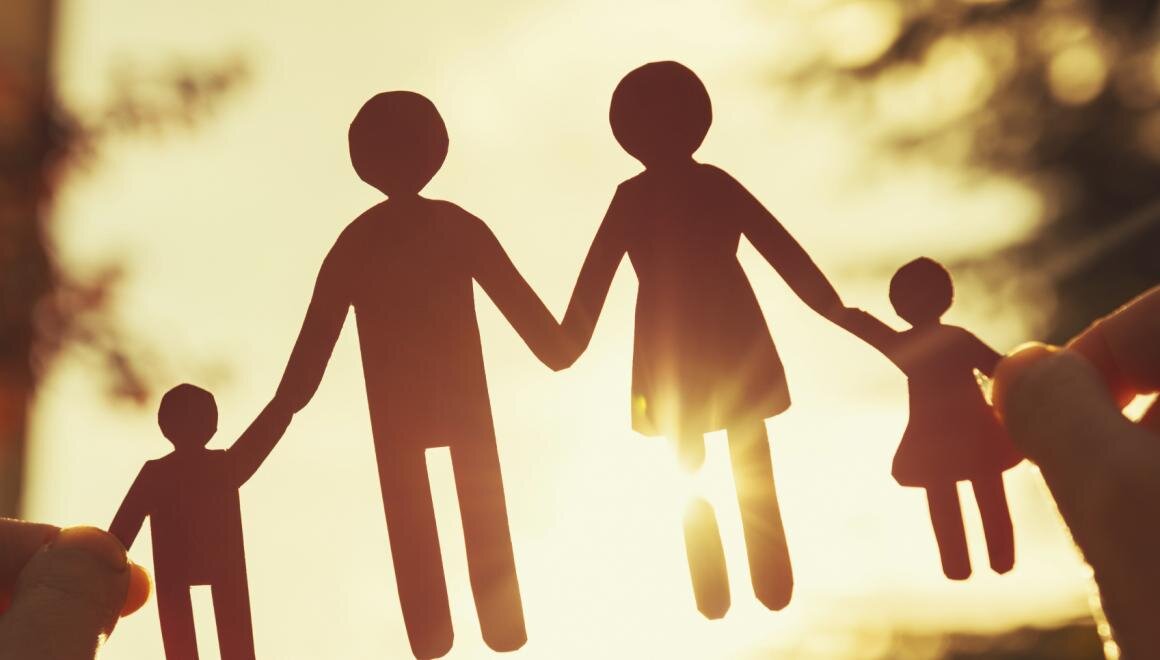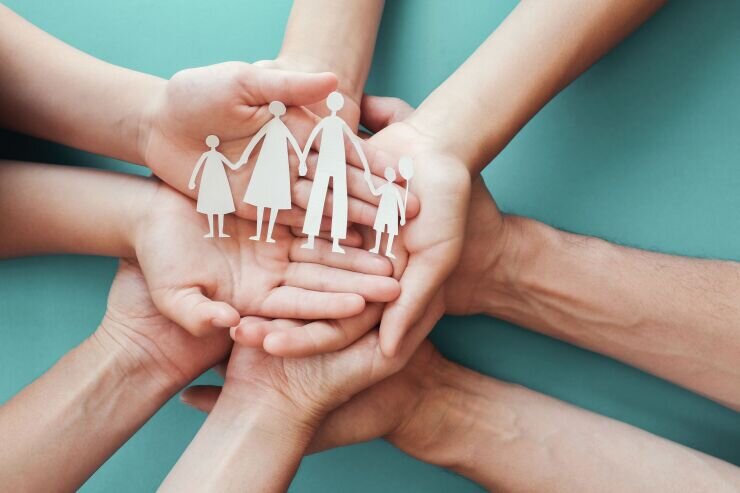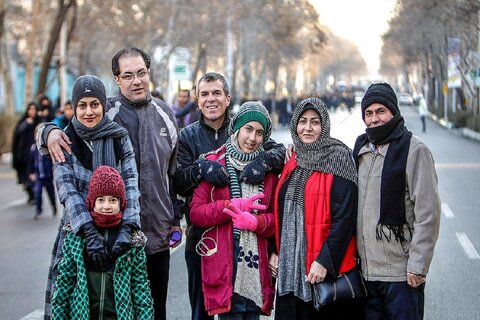Iran (IMNA) - "Family is important". There is no way to minimize or deny the truth of this statement. Without a doubt, everyone needs a family in their lives.
Family is crucial because they can provide unconditional love, support, and stability. They always strive to see and bring out the best in you, even when you are unable to do so for yourself. Family is crucial because, in most cases, they are the only people who can truly feel you and help you find that peaceful spot.
When it comes to coping with external pressures like dealing with drugs, alcohol, peer pressure, bullying, or someone saying unpleasant things to you, family is also extremely important in guiding you along the path of morality. Even if they can't protect you from everything, your family can help you get through difficult moments and provide you with the resources you need to neutralize or avoid a situation. If you don't already have a place to live, family will help you find one and will also give you advice on how to get back on your feet. Family members may give you unwelcome advice, but they do it out of a desire to see you succeed.

They Foster a Strong Sense of Family
Families develop a strong sense of identity when they spend time together and share shared experiences. This is especially crucial for kids, who gain a lot from having a strong sense of family.
Children who have a strong sense of family can feel secure and cherished, have a feeling of belonging, and have a solid base to fall back on in times of transition or crisis. Furthermore, kids who have a strong sense of familial identity are more likely to be confident in themselves, do well in school, and have successful relationships in the future.
A strong sense of family identity may protect against harmful influences from the outside world while simultaneously encouraging pride and collaboration. In other words, the wellbeing of each family member and the health of society as a whole depend on a strong family unit.
Promoting a strong family identity can be done in many different ways. Encouragement of open communication inside the family is one of them. Members are able to air their complaints and resolve disputes cooperatively as a result.
Celebrating individual and group accomplishments is an additional strategy. As a result, the family may feel more united and proud of themselves.
They educate us on the necessary social skills
Our families are the first people we contact in the social environment after birth. We acquire skills in interpersonal communication, emotion sharing, and strong interpersonal bonds.
These abilities get increasingly sophisticated as we age, yet they serve as the basis for developing enduring friendships and committed relationships. We continue to pick up things from our families as adults. Despite not constantly being in our lives, they continue to have an impact.
We learn how to handle problems, convey our wants, and set limits through our relationships with others. In short, family is one of the most significant social skill trainers. We may get several benefits from cultivating these relationships if we make the effort to do so.

They aid in the development of your personality
The people and environment around them shape everyone, but none more so than the family. Our parents, siblings, and other relatives have a significant impact on our lives, for better or worse.
They are the first individuals we see and model ourselves after. We may grow apart from our families as we get older, yet their effect persists. Here are a few instances of how family influences our personalities:
Genetics is one of the most visible ways our families shape us. We acquired our physical qualities, as well as attributes like hair and eye color, from our parents. However, genetics extends beyond looks. We also inherit predispositions and inclinations, such as a musical skill or a proclivity for specific diseases. Even though we cannot pick our DNA, we may learn to accept the characteristics that make us distinct.
Another way that our families shape us is through their experiences. We are exposed to our family members' habits, attitudes, and values from a young age. These things, whether we recognize them or not, have an effect on us over time. We may not agree with our parents or grandparents on everything, yet their impact is still felt. When it comes to who we become as humans, this effect is often bigger than heredity.
Finally, our families mold us through example. The way our parents treat us and each other has a big influence on how we perceive the world and how we treat others. We are more inclined to exhibit love and respect for others if we grow up in a loving and respectful home. If abusive or negligent conduct is accepted in a family, it can leave an imprint on future generations.

Family is critical to a child's development
The family is the most fundamental unit of society, and its members perform the most crucial role in the upbringing of a child. Each member plays a role in the child's growth in some manner. The primary caregivers, namely the parents, lay the groundwork for everything else.
They are the first people a newborn interacts with and builds relationships with. A newborn expects love, support, and security from them. A child's optimal social, emotional, and cognitive growth is dependent on a solid relationship.
Giving a child a sense of identity is one of the most essential things a family can do for them. Through their family, children discover who they are and where they come from. They also learn about their ancestry and culture. This sense of identity is important for a child's development because it gives them a sense of belonging and a sense of purpose.
Finally, family is essential to a child's growth since it offers a support system. When times are bad, children need someone on whom they can rely. They require assistance in getting through the difficult moments. A child's support system might come from his or her family.
What Is the Importance of Family in Society?
The family is important because it is the first social organization in which its members are socialized. It is where we learn to communicate, walk, and connect with others.
It gives emotional support to its members. In times of crisis, we seek comfort and direction from our family. They are the ones who are most familiar with us and will always be there for us.
Families also educate us on how to be good citizens. Our families teach us what it means to be responsible citizens. We learn the value of hard work and giving back to our community. We learn the value of respecting the rights of others. All of these factors help us to be better citizens and individuals.


Your Comment